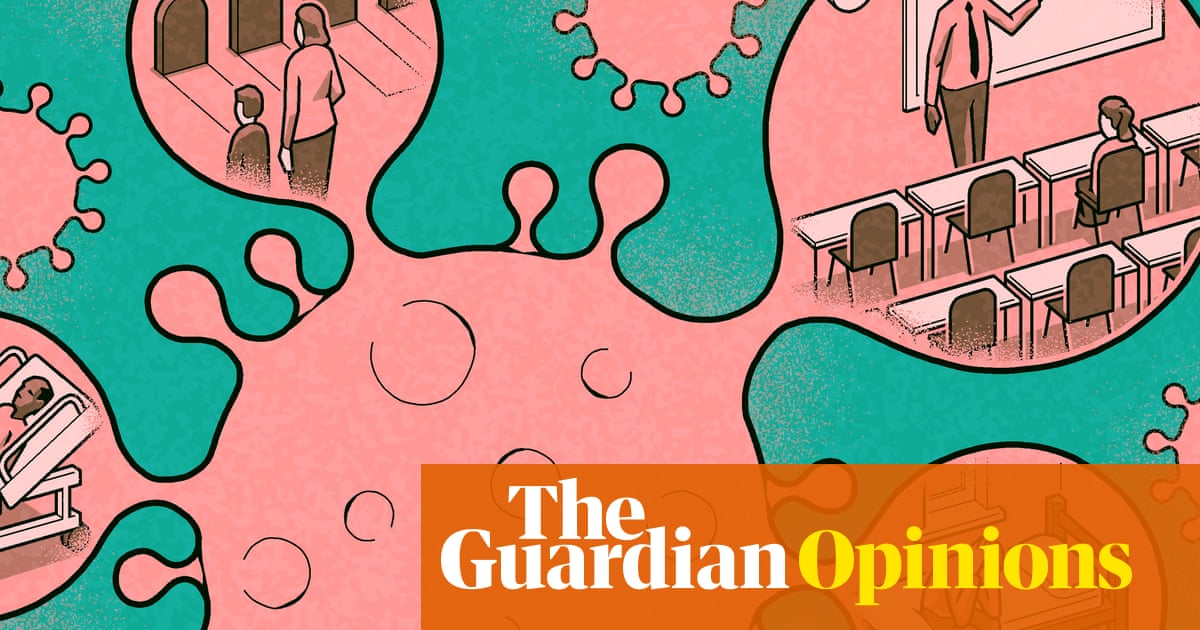
Half of Britons intend forming a Christmas bubble of up to three households this festive season, amid a warning from the prime minister that those who wish to do so should already be minimising their contacts.
The Office for National Statistics was told by half of adults that they would form a bubble while 38% said they would not.
The survey comes as Boris Johnson again pressed the government’s message of “personal responsibility” in the upcoming festive period.
“If you are forming a Christmas bubble, it’s vital that from today, you minimise contact with people from outside your household,” he said in a tweet on Friday morning.
The World Health Organization’s Regional Director for Europe, Dr Hans Henri P. Kluge, put the situation more bluntly in a statement on the holiday season.
“The safest thing right now is to remain at home,” he wrote, adding he will be following his own advice. “My family, including my elderly parents and I, have made the difficult decision to spend the holidays apart and at home.”
The need for caution was underscored by documents released by the government’s Scientific Advisory Group for Emergencies on Friday, which supported advice from Nicola Sturgeon, the first minister of Scotland, who has suggested if households do plan to see others, they should do so for only one of the five days permitted.
“It is likely that mixing between households over the holiday period for one or two days would be less risky than multiple households spending the entire time together,” the Sage documents state.
Meanwhile a document from the Public Health England transmission group highlighted the impact of meeting indoors, noting an analysis of different studies suggested the risk of one infected household member passing the virus to another household member is 18% on average, with a range of 4% to 55%.
The documents flag the importance of good ventilation for any indoor mixing and offer tips on maintaining good airflow. “Wider openings will provide more air flow, but this doesn’t mean that a window must be wide open all the time,” they said. “If windows have openings at both high and low levels (eg sash windows), using just the top opening can be helpful in colder weather because incoming cold air will mix with warm room air and help temper cold draughts.”
If noise or security are a problem, or there are concerns about heating costs, Sage advised regular room airing by opening windows for shorter time periods – particularly when visitors are present, and just after they leave. Extractor fans in bathrooms, toilets and kitchens should also be left running for longer than usual, with the door closed, after someone has used the room.
Fewer people plan to carry out their usual Christmas activities this year according to the ONS survey: just over a quarter of people said they would be visiting family and friends without staying overnight (26%, down from 52% last year) while one in five said they would have family and friends visit (19%, compared with 39% last year).
Just 11% of people said they would stay overnight with friends and family while 10% said they would have friends or family stay with them (down from 28% and 21% respectively).
The proportion of those planning to meet in restaurants, cafes or bars stood at 4% compared with 44% last year.
Tim Vizard, of the ONS said the survey, which was carried out between 10 and 13 December, showed that people had altered their Christmas plans ahead of updated government guidance in the wake of rising case figures across many parts of the country.
“Even before the updated guidance about socialising over Christmas, people were already making significant changes to the way they normally celebrate Christmas. This included lower proportions of adults planning to stay overnight with others, travel overseas and travel by public transport compared to last year.”
The survey comes as Dame Donna Kinnair, the chief executive and general secretary of the Royal College of Nursing, warned that the relaxation of Covid restrictions over the festive period could be disastrous.
“Travelling and family visits associated with this time of year will undoubtedly lead to more cases, more pressure on NHS and care services, and more deaths,” she said. “By turning the second and third waves into an unrelenting tsunami, we would begin 2021 in the worst possible way.”
Elsewhere, the survey found that one in 10 people in Britain were “very” or “fairly” unlikely to take the Covid vaccine, with one in 20 saying they didn’t know.
Of those who said they would be unlikely to take the vaccine if offered, the most commonly reported reasons were:
Feeling worried about the side-effects (52%).
Wanting to wait to see how well the vaccine works (52%).
Feeling worried about the long-term effects on their health (46%).
A much smaller proportion (7%) said they were “against vaccines in general”.
There were differences in the intention to take the vaccine depending on age: while 95% of those aged 70 and over indicated they would take the vaccine, the proportion decreased with age.
Among 16- to 29-year-olds only 63% said they were “very likely” or “fairly likely” to have the vaccine if offered.












